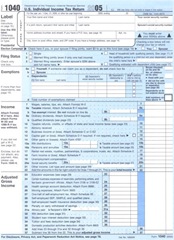Headlines for newspaper items and blog posts are troublesome things. They have always sold papers, particularly tabloids, but the advent of the web and search engines have made their importance, and the temptations to play games with them, even greater. The coin of this realm is the click, and if you  want to get surfers to read your stuff you better have a catchy title, preferably including some popular search terms.
want to get surfers to read your stuff you better have a catchy title, preferably including some popular search terms.
Earlier this month The Washington Post blamed an increase in typos (e.g. soldiers wearing "shiny black boats" on their feet) on copy editors being distracted by new duties. "Separate online headlines must be written in a way that attracts attention on the Web."
I bring this up because the other week Jason Zweig’s Intelligent Investor column in The Wall Street Journal was headlined "Why Many Investors Keep Fooling Themselves." (Mysteriously, the metatitle, the thing that appears at the top of the browser window, hedged: "Why Some Investors May Be Fooling Themselves.")
Read more »
Almost three years ago I discovered peer to peer lending, in the form of the then widely hyped Prosper.com. For a week or two I was enthusiastic on it as an investment, until I crunched enough numbers to decide it was not so  exciting after all. In the meantime, I had put $1000 in ten $100 loan slices.
exciting after all. In the meantime, I had put $1000 in ten $100 loan slices.
Loans on Prosper are three years in duration, so next week this little experiment will finally wind down. Assuming that I get the last $15.46 that is owed me, I will have received a grand total of $1029.50 over three years. A zero percent return is pretty lousy, but at least I have the solace that quite a few other things that I could have invested in in January 2007 would have done a lot worse.
But, as it turns out, breaking even makes me an above average lender on Prosper. According to the delightfully data laden Eric’s Credit Community, which tracks and analyses Prosper loan data, the average lender on the site has an ROI of –2.29%. Again, it could have been worse.
Read more »
A headline in the Boston Globe caught my eye the other day. Study says many Americans are in the dark on basic financial concepts. It turned out to be old news, about a study from FINRA that came out about six weeks ago.
 But there was one tidbit the Globe highlighted that I had missed last month. When asked "If interest rates rise, what will typically happen to bond prices?" only 21% of Americans got the right answer, that they will fall.
But there was one tidbit the Globe highlighted that I had missed last month. When asked "If interest rates rise, what will typically happen to bond prices?" only 21% of Americans got the right answer, that they will fall.
Now I am, to say the least, not easily surprised by financial ignorance, but 21% correct on a multiple choice question with essentially two choices is pretty amazing. Even if you allow for a third possibility, that bond prices neither go up nor down but stay the same, 21% is still well below the monkeys and dartboards threshold of 33%.
Read more »
As most of you know, 2010 is a special year for taxes. It is the last year covered by the Bush tax cuts which, as you may remember, were engineered as a package of temporary adjustments and deals rather than permanent  changes. Most of it goes poof on December 31st of this year.
changes. Most of it goes poof on December 31st of this year.
In the meantime, 2010 is a special year for converting traditional IRAs into Roths. When the Bush cuts were being constructed there was a need to find more government revenue, particularly at the end of the period covered by the law, i.e. 2010. IRA conversions fit the bill because, in the short run, they generate additional income tax revenue. (In the long run they do not, since conversions reduce income taxes paid in the future.)
So as of a few days ago, the income limitation on conversion to a Roth is gone. And just to get things started with a bang, for 2010 only, you have the option to defer the income tax bill on the conversion to 2011 and 2012. (That is, it is split between those two tax years.)
Read more »
This is the first post of the new decade. I can’t be sure, but I think that the recent two digit change in the Great Odometer has been a little underplayed this time around, relative to the buzz from, say, 1990.
(Fussbudgets who insist that decades start with years that end in 1 instead of 0 need to stop taking themselves so seriously. Yes, the conventional definition  is not entirely logical. Does it also bother you that fire alarms go "off" when they operate?)
is not entirely logical. Does it also bother you that fire alarms go "off" when they operate?)
Part of the under-buzz may be due to the fact that we never really got around to naming the decade that just ended. In fact, a large portion of what media coverage the decade got focused on this oversight. I have no helpful suggestions. Personally, I will always think of the 2000-09 period as the Really Fast Decade. Seriously, it feels like it lasted ten months, at most.
For investors and savers, one obvious nominee is The Lost Decade. My main objection to this is that the name is already taken, referring to the 1990s in Japan, where two generations of postwar economic expansion came to a sudden and bewildering halt on or about January 1, 1990. Compared to that, our last ten years wasn’t really all that lost. The Misplaced Decade?
Read more »
 want to get surfers to read your stuff you better have a catchy title, preferably including some popular search terms.
want to get surfers to read your stuff you better have a catchy title, preferably including some popular search terms.


